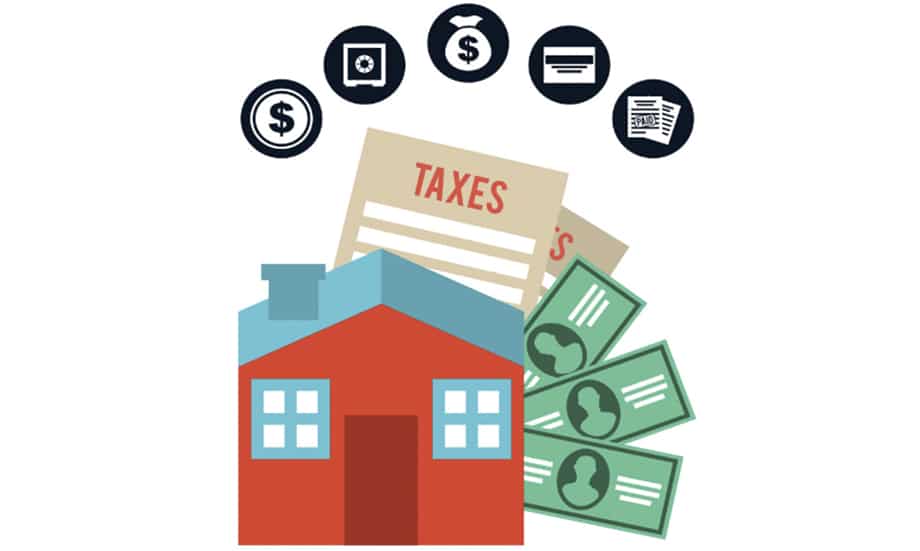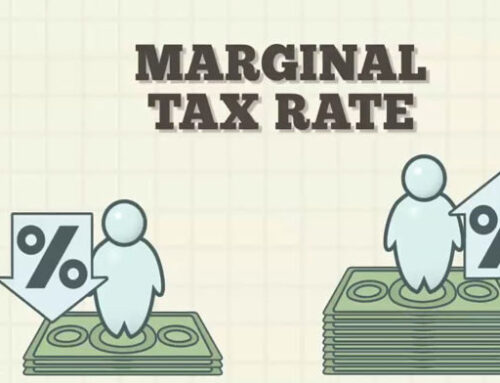When it comes to the decision of renting versus owning a house, opinions can be divided right down the middle. With various factors to consider, such as the notorious question of “will my neighbors be weird?”, one crucial aspect to assess is how your tax benefits for homeowners will be impacted for credits for tenants. Understanding the tax perspective can help unravel the complexity. Let’s break it down for you.

Tax Benefits for Homeowners and Tenants
Tax Credits for Tenants
When it comes to renting a house, apartment, or condo, there are generally no tax credits available for the rent paid. However, all hope is not lost! If you operate a business from your rented space or are required to have a home office by your employer, you can still benefit. A portion of the rent used for work purposes can be deducted. For example, if your monthly rent is $2,000 and you use a quarter of the space for work, you can deduct $500 per month.
In certain provinces, there are additional ways tenants can benefit:
- Ontario: Your monthly rent is considered for eligibility for the Ontario Trillium Benefit, and even students residing in dormitories may qualify for this credit.
- Manitoba: Renters can claim 20% of their rent, up to a maximum of $700, through the Manitoba Education Property Tax Credit.
- Quebec: There are two tax breaks available – the Solidarity Tax Credit and a tax break for residents over 65 from the Home Support Services for Seniors for credits for tenants.
Tax Credits for Homeowners
Being a homeowner comes with more opportunities for tax breaks. In addition to claiming the same credits as tenants, there are additional perks to explore.
- First-Time Home Buyer Tax Credit: If you’re purchasing your first home or neither you nor your partner have previously owned a home individually, you can claim a one-time credit of $5,000 through the Home Buyers Tax Credit, which can be used towards your mortgage. The Home Buyers’ Plan allows you to withdraw from your registered retirement savings plans to facilitate home purchase or construction.
- Renovations Tax Credits: As a homeowner, you’re responsible for renovations and repairs. The Home Accessibility Tax Credit (HATC) can help. Expenses for renovations that make your home safer or more accessible for seniors or the disabled may qualify for up to $10,000 in tax credits. Examples include installing a wheelchair ramp, walk-in tubs, or handrails.
- Medical Tax Credits for Homes: Similar to the HATC, the medical expense tax credits for tenants can be claimed for renovations that enhance accessibility for individuals with mobility issues. Qualifying medical expenses exceeding 3% of your net income can be claimed.
- GST/HST Housing Rebate: If you’re purchasing a newly constructed home, you may be eligible to claim the GST/HST through the GST/HST new housing rebate for credits for tenants. The home must be your principal residence and valued at less than $450,000.
- Rental Income Tax Credits: If you own a rental property, you can add the rental income to your overall income but can also claim expenses such as advertising, insurance, and interest on borrowed money used to purchase or improve the property.
- Selling Your Home: When you sell your principal residence, you can enjoy a tax-free gain due to the principal residence exemption. However, if the home was not your principal residence for every year of ownership or only a part of the home was your principal residence (e.g., renting out the basement), you may qualify for a partial tax exemption.

Navigating the tax landscape can be complex, but understanding the available credits and deductions can help tenants and homeowners make the most of their tax benefits.
As the tax season approaches, individuals and families across the country are exploring ways to maximize their tax benefits. For both tenants and homeowners, there are various tax credits for tenants and deductions available that can help reduce the tax burden and put more money back in your pocket. In this blog, we’ll explore the key tax credits for tenants available to both tenants and homeowners, offering insights on how to take full advantage of these opportunities.
Also Read: Are tipping subject to taxation in Canada?
Tax Credits for Tenants
-
The Earned Income Tax Credit (EITC)
The Earned Income Tax Credit is a significant financial benefit for low to moderate-income individuals and families. While this credit is not specific to tenants, it can be particularly helpful for renters who meet the income requirements. To maximize these credits for tenants, ensure that you accurately report your income and any qualifying dependents on your tax return.
-
Child and Dependent Care Credit
If you’re a tenant and you pay for child care or dependent care services so you can work, you may be eligible for the Child and Dependent Care Credit. This credit can help reduce the cost of childcare expenses and increase your tax refund.
-
Education Credits
Many tenants, especially students or parents of students, may qualify for education-related tax credits like the American Opportunity Credit or the Lifetime Learning Credit. These credits can help offset the costs of higher education, including tuition and related expenses.

Tax Credits for Homeowners
-
Mortgage Interest Deduction
For homeowners with a mortgage, the mortgage interest deduction can be a substantial tax benefit. You can deduct the interest paid on your mortgage loan, reducing your taxable income for credits for tenants. To maximize this deduction, keep accurate records of your mortgage interest payments and ensure you meet the eligibility criteria.
-
Property Tax Deduction
Homeowners can also deduct property taxes paid on their primary residence. Keep records of your property tax payments and credits for tenants be aware of any changes in the tax laws that may affect the deduction amount.
-
Energy Efficiency Credits
There are tax credits available for homeowners who make energy-efficient improvements to their homes. These can include upgrades like solar panels, energy-efficient windows, or heating and cooling systems. These credits not only reduce your tax liability but also contribute to a greener and more sustainable future.
-
First-Time Homebuyer Credit
If you’ve recently purchased your first home, you may be eligible for the First-Time Homebuyer Credit. This credit can help offset the costs associated with buying a new home, such as closing costs and down payments.
Also Read: Are Gifts To Customers And Business Associates Deductible Expenses?
Maximizing Tax Benefits
To maximize the tax benefits available to tenants and homeowners, consider the following tips:
- Keep meticulous records of your expenses, including rent, mortgage interest, property taxes, and energy-efficient home improvements.
- Consult a tax professional or use tax preparation software to ensure you’re taking advantage of all eligible credits and deductions.
- Stay informed about changes in tax laws that may impact your eligibility for certain credits or deductions.
- Consider consulting with a financial advisor or tax planner to develop a comprehensive tax credits for tenants strategy that aligns with your financial goals.
Conclusion
Whether you’re a tenant or a homeowner, there are various tax credits and deductions available to help you reduce your tax liability and keep more of your hard-earned money. By staying informed about these opportunities, maintaining accurate records, and seeking professional guidance when needed, you can maximize your tax credits for tenants and improve your financial well-being. Remember that tax laws can change, so it’s essential to stay updated on any developments that may affect your tax situation.
Recent Posts
FAQ
Can I claim the GST/HST through the GST/HST new housing rebate if I'm purchasing a newly constructed home?
Yes, you may be eligible to claim the GST/HST through the GST/HST new housing rebate if you're purchasing a newly constructed home. However, there are certain criteria that must be met. The home must be your principal residence and valued at less than $450,000. By meeting these requirements, you can potentially benefit from the rebate.



